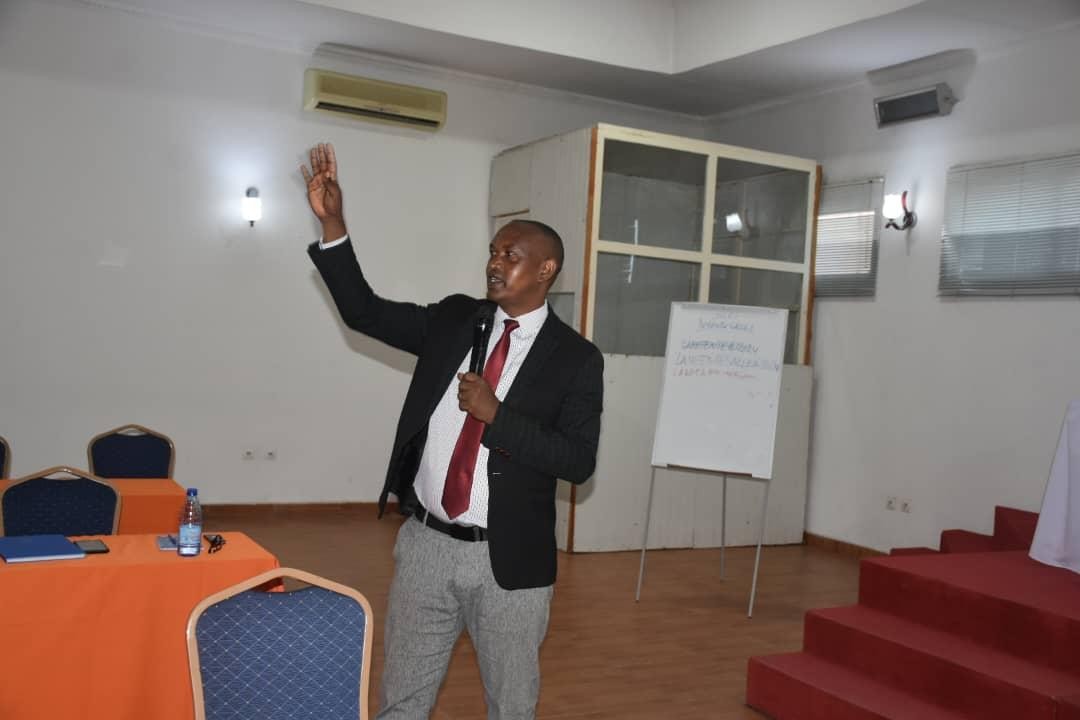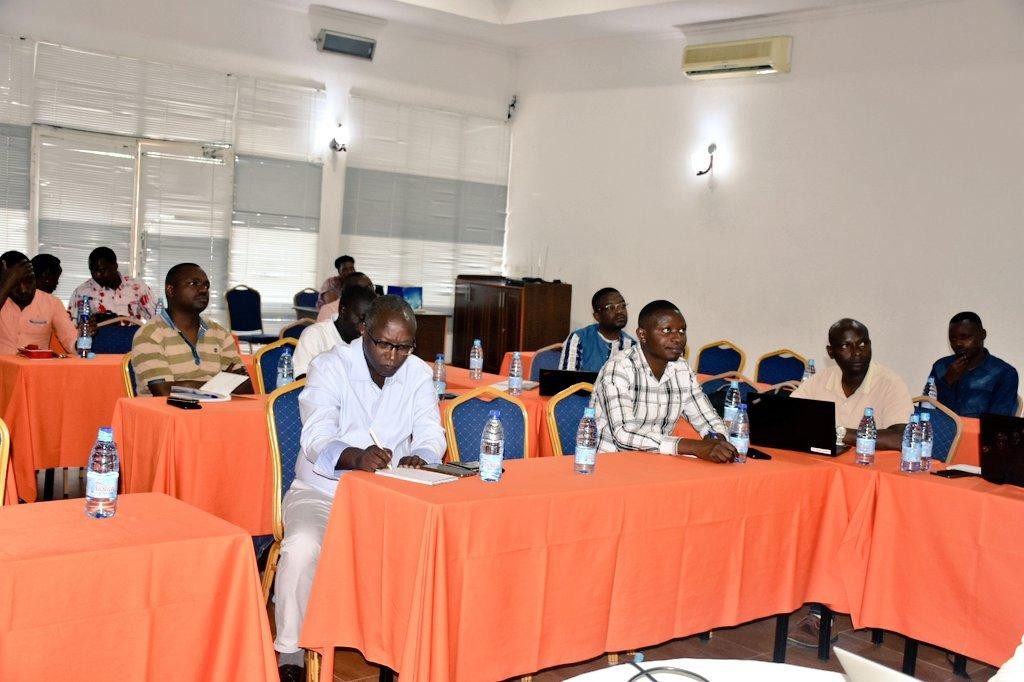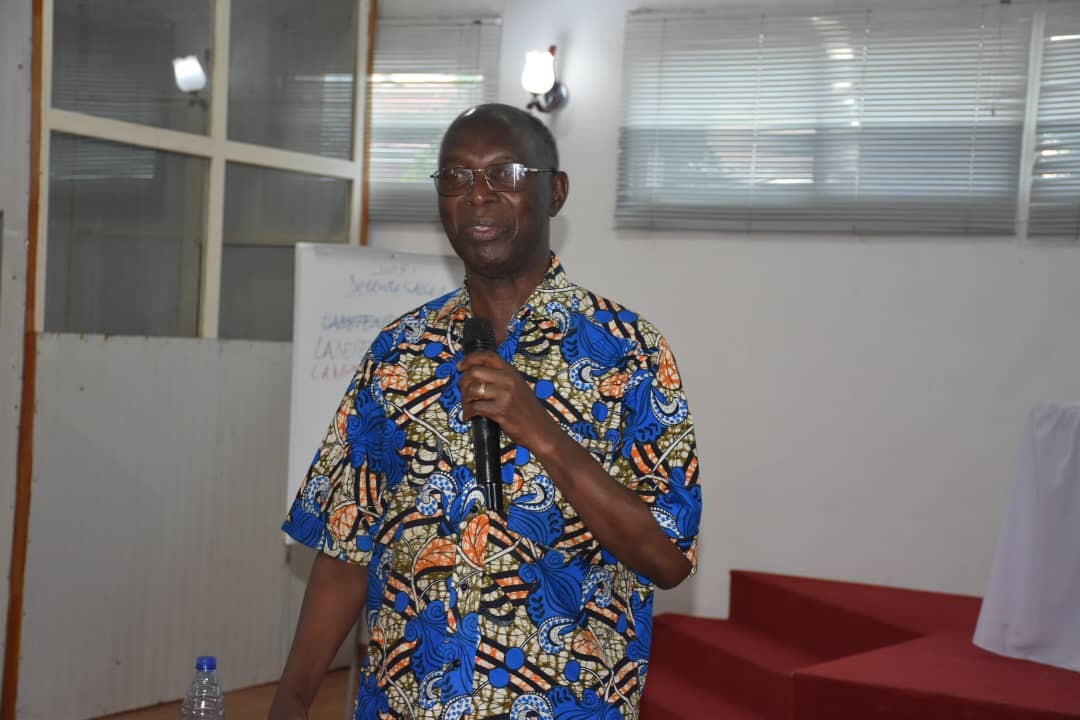BUJUMBURA, February 7th (ABP) – The national expert on persistent organic pollutants, Jérôme Karimumuryango, has revealed the precautionary measures that need to be learned to protect human health and the environment from those products. He was speaking at a workshop organised last week for health professionals and dentists by the Ministry of the Environment, Agriculture and Livestock, through the Office burundais pour la Protection de l’Environnement (OBPE),
According to Mr Karimumuryango, persistent organic pollutants (POPs) are chemical pollutants from the class of organic compounds that are persistent, which are subdivided into three categories: pesticides, industrial chemicals and waste. According to him, pesticides and industrial chemicals are manufactured by industries, while POPs waste can come from industries and/or everyday human activities.

He gave the example of waste incinerators, the burning of hazardous waste in cement kilns, industrial metallurgy processes for the production of copper, aluminium, zinc, etc. He also mentioned the open burning of waste, landfill sites, charcoal, firewood, peat, forest and bush fires, and the burning of fossil fuels in cement kilns. He also drew attention to the open burning of waste, landfill sites, charcoal, firewood and peat, forest and bush fires, the burning of fossil fuels in industrial boilers, vehicles using leaded petrol or diesel containing excess sulphur, textile and leather dyeing, and so on.
He warned that those pollutants know no borders, as they are volatile and insoluble in water, and can pass from one country to another either through the air or through water. They can enter the body by breathing contaminated air or by consuming contaminated food and drink. He pointed out that aquatic flora and fauna can also be contaminated by POPs present in water, which in turn contaminate consumers. In mammals, he pointed out, POPs can be passed from generation to generation, because, explained Karimumuryango, POPs accumulate in the udder and, as those POPs accumulate in the breasts of women or girls and are persistent, they will be transmitted from generation to generation during pregnancy and breastfeeding.
That constitutes a transmissible danger, he added. POPs can also cause various illnesses, including cancer and foetal malformations.
To protect ourselves against POPs, Karimumuryango said that we first need to know the nature of POPs, their characteristics and their behaviour in the environment or in living organisms such as people, animals and plants.

It is vital, he said, to control the effects of POPs on human health and the environment, to seek out and exchange information and knowledge about POPs, and to limit and if possible, avoid the use of POPs pesticides and POPs industrial chemicals. POPs waste must also be combated at source, by limiting and, if possible, avoiding bush and forest fires, waste burning, the burning of charcoal, firewood and peat, and avoiding the use of leaded petrol or diesel with excess blast, said Karimumuryango.
As mercury is one of the chemical pollutants in the class of organic compounds that are persistent when degraded, Alphonse Polisi, coordinator of the project to support institutional capacity-building for the implementation of the Minamata Convention on mercury, deplored the fact that the Burundian population lacks information on mercury and the harmful effects of its use.
According to Polisi, mercury is considered to be a poison, a very dangerous chemical, because when it enters a person’s body, it kills slowly. He pointed out that mercury has been used for a long time, particularly in the health sector (thermometers and blood pressure gauges). It is also used in gold mining and can be found in waste, when broken objects containing mercury, such as batteries, are thrown away during incineration.
Studies carried out by OBPE have shown that 64 tonnes of mercury are used in various sectors, which is a sad reality in Burundi, according to Mr Polisi.
He therefore called on the Burundian population “to take mercury as an epidemic that kills slowly”. Everyone in their workplace, he added, must take the lead in preventing the harmful effects of mercury, and use equipment that does not contain mercury, in order to protect human health and the environment.
He also called on church leaders to learn more about mercury so that they can teach their followers about its harmful effects.
The Minamata Convention is a global treaty designed to protect human health and the environment from the harmful effects of mercury. Burundi ratified it in 2021, to raise public awareness of mercury, which has long been used in everyday life and is damaging people’s lives, especially in provinces where gold mining is taking place, where many people are suffering from illnesses linked to the harmful effects of mercury.
He recommended that gold mines use equipment that does not contain mercury. And for the incineration of hospital or household waste, masks should be worn so as not to be contaminated by fumes that may contain mercury.
The workshop participants therefore recommended that there should be a national waste management policy, incinerators that meet medical waste elimination standards, close collaboration between the ministry responsible for the environment and the ministry responsible for health, in order to meet the various challenges, and a synergy of stakeholders to combat the harmful effects of mercury use.
The media, for their part, have been called on to run advertising spots to inform the public about mercury and the harmful effects of its use.

